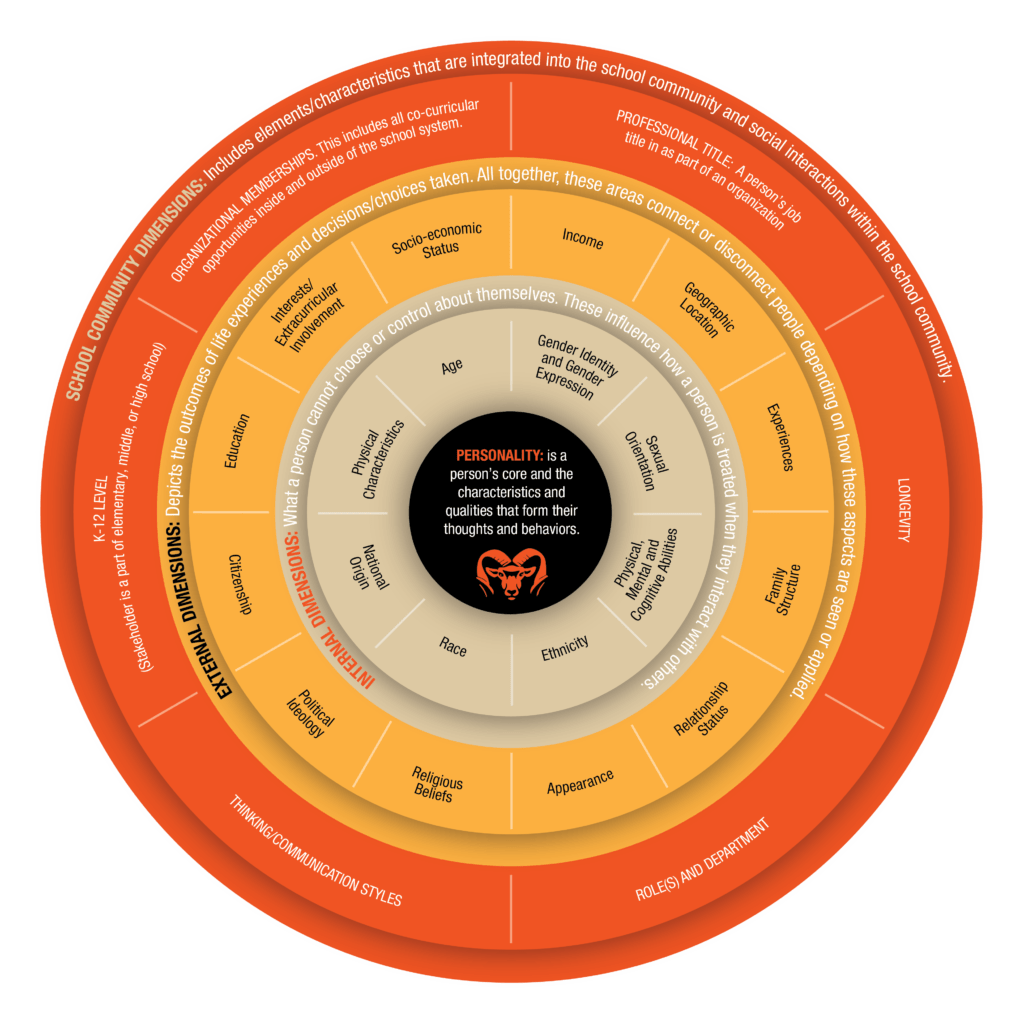Diversity Wheel Glossary

- Age – The number of years a person has been alive.
- Appearance – How a person chooses to express themselves with dress.
- Citizenship – The position or status of being a citizen of a particular country.
- Education – The process of receiving or giving instruction especially in a school or university.
- Ethnicity – A person’s ethnic affiliation or quality.
- Experiences – The process of living through events.
- Interests/Extracurricular Involvement – Participation in an activity outside of assigned coursework.
- Family Structure – The combination of relatives and people that comprise a family.
- Gender Expression – The physical and behavioral way one conveys their gender through mannerisms and expressions.
- Gender Identity – A person’s internal sense of being male, female or some combination thereof.
- Geographic Location – A person’s position and place on the earth.
- Income – Money received.
- K-12 level – Publicly supported grades prior to college or university.
- Longevity – A long duration of existence or service.
- National Origin – The nation where a person was born or where their ancestors came from.
- Organizational Memberships – Belonging to a group or organization outside of school hours.
- Physical Characteristics – A person’s distinguishing traits or qualities.
- Professional Title – A person’s job title as part of an organization.
- Physical, Mental and Cognitive Abilities – A person’s natural physical, cognitive and mental aptitude and proficiencies.
- Race – A group sharing a common cultural, geographical, linguistic, religious origin or background.
- Relationship Status – A term used to describe if a person is single, married, or in a civil partnership.
- Religious Beliefs – Holding or not holding a religious belief.
- Roles and Department – An individual’s responsibility or position in an organization.
- Sexual Orientation – A person’s sexual identity as bi-sexual, straight, gay, pan, etc.
- Socio-economic Status – The social standing or class of an individual group often measured in income, education, and occupation.
- Thinking and Communication Styles – how someone expresses thoughts, feelings, and beliefs.
